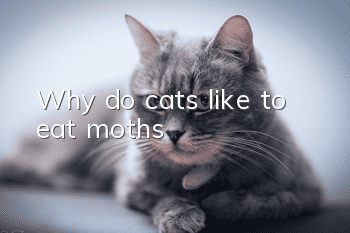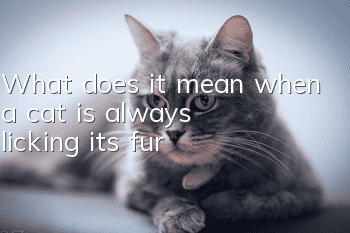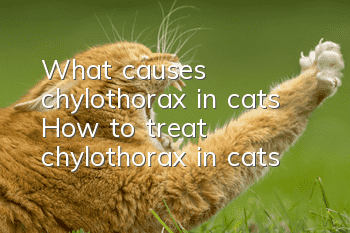Why do cats like to eat moths?

Cats like to eat moths mainly out of curiosity. This is a genetically determined instinct. In addition, cats will also eat some bugs and flying insects in the natural environment. Moths are just one of them, and moths themselves are not toxic, so cats generally will not have any adverse effects after eating moths. However, some cats have sensitive stomachs and may cause vomiting and other adverse symptoms after accidentally eating moths. Therefore, owners can always pay attention to the changes in their cats. If adverse reactions occur, they need to be sent to the pet hospital for examination and treatment in time.
Is it okay if a cat eats a moth?
Because the moth itself is not toxic, it is generally okay for cats to accidentally eat moths, but some cats The stomach and intestines are relatively sensitive, and eating moths by mistake may cause vomiting and other adverse symptoms. In response to this situation, if it is discovered in time, it is recommended to take necessary measures to induce vomiting. If it is discovered late, it is recommended to closely observe the cat’s condition and provide necessary supportive treatment. For example, if the vomiting is severe, antiemetics containing maropitant citrate and other ingredients can be used.
What to do if a cat eats a moth?
As long as the cat eats a moth, the owner does not need to worry too much as long as the cat does not appear abnormal. Worry. However, if the cat develops vomiting, diarrhea, lethargy, etc. after accidentally eating moths, the owner needs to send the cat to the pet hospital for examination and treatment in time. In daily feeding and management, owners should also do a good job in sanitation of the cat’s feeding environment to prevent cats from accidentally eating unclean food.
In addition, there are many things that cats cannot eat, such as acetaminophen, chocolate, onions, grapes, etc. If cats accidentally eat them, they can cause acute poisoning, and in severe cases, death. Acetaminophen poisoning can cause drooling, convulsions, and watery limbs.
- The 6 most important things in a cat’s life, a must-read for novices!
- Is my cat sick if his nose is dry?
- Five tips for cat training
- What should I do if my cat likes to drink bath water?
- When a cat vomits a puddle of water, is it vomiting a hair ball? What happens when a cat vomits!
- Introduction to several common diseases of elderly cats
- What is nasal congestion? How to treat cats with nasal obstruction?
- Why do cats like to stay next to them when they go to the toilet?
- Why do Siamese cats change color?
- Cat breeds, exotic shorthair cats you don’t know!



